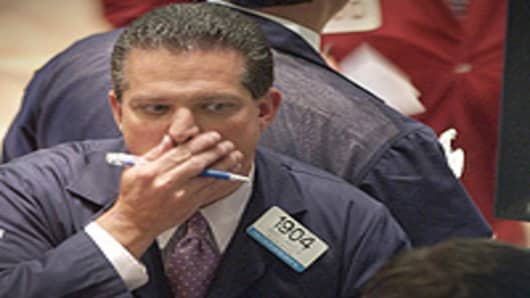Since August the market has been very volatile.
Huge market swings for stocks added to a sense of crisis as investors fretted over Greek default, the global banking system and a slowdown in the US economy.
The world’s central banks remain in crisis mode using unconventional measures to shore up confidence and avert a major crisis.
Then, in October, things started to improve.
Last Friday investors got a significantly better than forecast US jobs number and previous data was revised higher.
The big change has been a hope that euro zone leaders are about to get ahead of the sovereign debt crisis, come up with a credible plan for Greece, recapitalize the banks and increase the money available to the European Financial Stability Fund in order to protect other euro zone member bond markets from the vigilantes.
“The pressure is on and the noises suggest euro zone leaders are applying themselves to the task. If they deliver at the G20 summit in Cannes early next month, equity markets should finish the year in fine form,” said Mike Lenhoff, a strategist at Brewin Dolphin Securities in a research note.
Others like HSBC strategist Steven Major believes policy makers are finally taking the initiative, in a move which may “tempt investors to abandon their risk-off stance.” For that risk-off trade to be sustained over the longer-term, Major said a grand plan to ensure sovereign debt instability goes and away and stays away was needed.
Bigger Haircuts for Greek Bonds?
This would involve a Greek solution with bigger haircuts for private sector bond holders, recapitalization of the banks and those euro zone members struggling with debt burdens, the launch of a joint euro zone Eurobond and finally, with the EFSF supporting weaker nations, ECB support for the euro zone’s solvent members.
“Success spells safe-haven outflows – bad for Bunds. The success of such a scheme would, all things being equal, send flight-to-quality flows into reverse, driving up yields in the US, UK and Germany,” said Major.
In Bratislava, Slovakian lawmakers will vote on the expanding the EFSF to a level now seen as inadequate, less than three months after the euro zone agreed upon the last "final" plan to save the euro zone.
Carl Weinberg, the chief economist at High Frequency Economics and a known euro zone bear, is not ready to accept the assumptions needed to look at the euro zone debt crisis in a positive light, as many investors are currently believed to do.
“Last week, markets where buoyed by news that progress was being made on implementing EFSF II, and that Germany’s government was stepping back from ideological differences with its EMU partners to move closer to a bank recapitalization plan,” said Weinberg in a note to clients on Tuesday.
Despite assurances from German Chancellor Angela Merkel and French President Nicolas Sarkozy that they have agreed on a plan to support the banks, Weinberg simply cannot see why people are now positive.
“Funding for a recapitalization scheme is not even imagined, let alone realized. Greece draws closer to default each day, admitting that it will run out of money by mid-November… four weeks from now,” wrote Weinberg, who sees a cascade of bank failures, a credit crunch and depression around every corner.
“Nothing has changed.”



